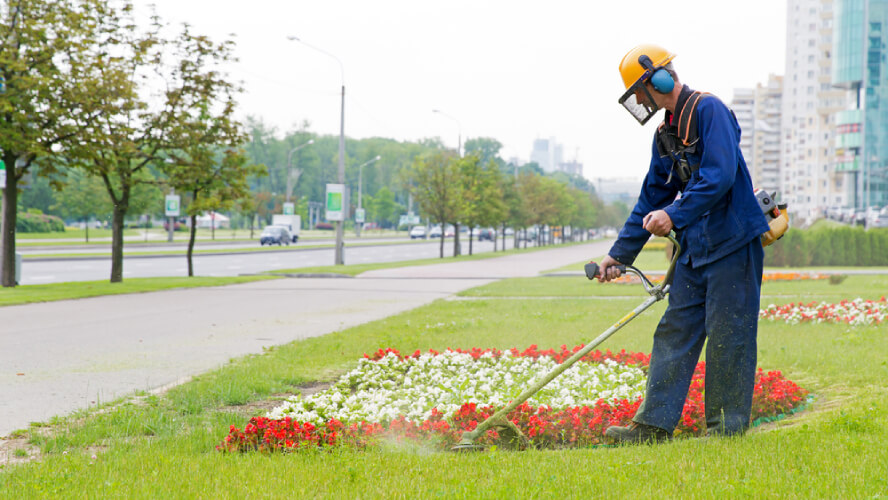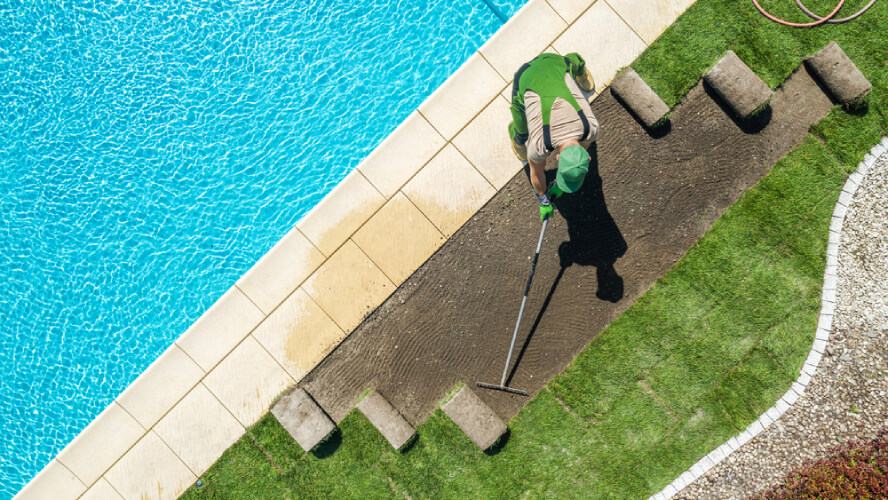How landscapers can stay safe on the job
Landscapers put in long hours year-round to keep private homes, businesses and public spaces looking their best. Here in Georgia, a lot of that work takes place in the intense heat of the summer. Our heavy rains make the grass grow quickly, supercharge weeds and bring down trees and limbs.
But heat and sudden thunderstorms represent just a portion of risks landscapers face most days on the job. With heavy machinery, sharp power tools, repetitive work and exposure to pesticides, landscapers need comprehensive safety training and site protections to stay safe on the job.
Common injuries for landscaping workers
The fatality rate for landscape services workers is 25 deaths per 100,000, according to the CDC. That’s in line with high-risk jobs like agriculture and mining. And while landscapers are of course at risk for serious acute injuries from heavy equipment and power tools, they’re also prone to disabling conditions that develop over time from repetitive stress, noise exposure and pesticide use.
According to OSHA, landscapers are at risk for the following:
- Cuts and amputations from tools and machinery
- Motor vehicle accidents, particularly on sites that involve grading and earth moving
- Electrical risks from trimming near power lines
- Ergonomic injuries from heavy lifting and awkward positions
- Slips, trips and falls
- Noise exposure
- Pesticide and fertilizer exposure
- Heat stress
How landscaping companies can help workers avoid injuries

While landscapers face a range of risks and challenging work conditions, many of the risks can be lessened or eliminated through safety training, preparedness and job site protocols. Landscaping companies can focus on the following when developing safety training:
- Tool safety: Landscape industry employees face dangers from sharp tools, like mowers, trimmers and edgers, as well as amputation risks. New employees should receive training in correct use. Companies should also have a clear protocol on maintenance schedules and how to safely address breakdowns or jams.
- Ergonomic safety: Whether it’s trimming at awkward angles, moving heavy bags of materials or planting large shrubs or trees, landscapers face ergonomic stresses. Learning proper lifting and investing in truck ramps, dollies and other equipment can help avoid musculoskeletal disorders (MSDs).
- Motor vehicle safety: Everyone on site should understand safe practices around equipment like excavators, motor graders or mini bulldozers.
- Personal protective gear and work clothing standards: Every team member should receive appropriate safety gear for their job, including hardhats when needed, heavy-duty gloves, earplugs or earmuffs, and eye protection. Workers should wear reflective clothing, protective shoes and avoid loose items or jewelry that could get caught in equipment.
- Preparation: Crew leaders should always plan ahead of a job by calling for utility locations and knowing where the nearest hospital or urgent care is. It’s also smart to stock a comprehensive first-aid kit, including supplies for allergic reactions to insect stings.
- Heat safety: Workers should have constant access to cool water and regular breaks in the shade.
- Minimizing long-term hazards: If employees use pesticides or fertilizers, it’s important to know how to minimize exposure. Gas-powered tool exhaust can also lead to long-term health problems. Companies may consider switching to electric leaf blowers or mowers to create better air quality for workers.
Ultimately, training needs to be ongoing, accessible and available in a language employees will understand.
While worksites often change for landscapers, the steps to take after an injury are the same as they’d be for other types of workers:
- Get the medical attention you need.
- Report your accident.
- Document the scene.
Unlike agricultural workers who are usually not entitled to workers’ comp in Georgia, many landscaping employees can receive compensation for work injuries that take place on the job.
Georgia Workers’ Compensation Attorney
Landscaping employees can face a range of injuries on the job. If you’ve experienced an injury at work, workers’ compensation can help. Contact the Law Offices of Laura Lanzisera today for a free consultation, or give us a call at 404-991-5097.

Leave a Reply
Want to join the discussion?Feel free to contribute!